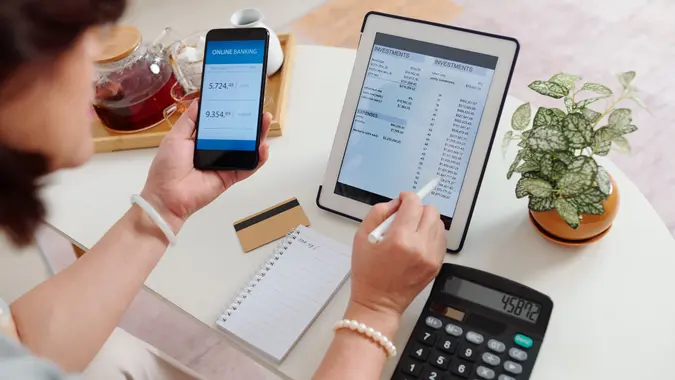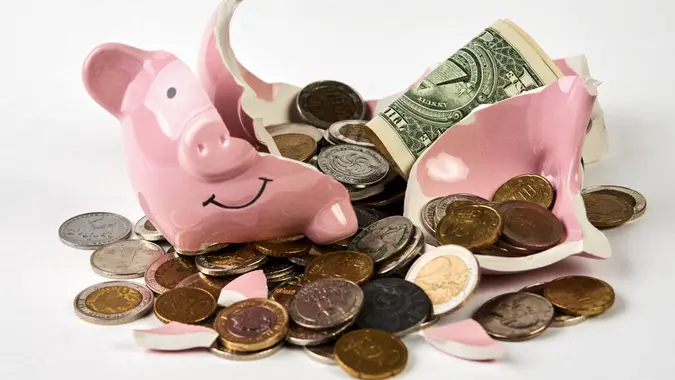Steps To Take If There’s a Bank Mistake in Your Favor

Commitment to Our Readers
GOBankingRates' editorial team is committed to bringing you unbiased reviews and information. We use data-driven methodologies to evaluate financial products and services - our reviews and ratings are not influenced by advertisers. You can read more about our editorial guidelines and our products and services review methodology.

20 Years
Helping You Live Richer

Reviewed
by Experts

Trusted by
Millions of Readers
Imagine waking up, rolling over, checking your bank balance on your smartphone and seeing an extra $10,000 in your account. After rubbing your eyes a few times and looking again, the money is still there. Your first reaction might be to leap out of bed and start imagining how to spend it.
But if you ever find unexpected money in your bank account, it’s important to take a closer look. Once you realize the bank has made an error and the money doesn’t belong to you, there are specific steps you should take immediately — and some you should avoid.
What To Do If Your Bank Makes an Error
If you think you’ve received money in your account by mistake, the first step is to verify that it’s not yours. Sometimes, people forget about deposits or automatic transfers they’ve set up. Unexpected funds can also come from sources like a government stimulus payment or an old debt a friend is repaying.
However, if you confirm that the money truly doesn’t belong to you, notify your bank immediately.
Although financial institutions have systems in place to prevent errors, mistakes still happen. Teller-based transactions are especially prone to human error, such as transposing numbers or entering incorrect account information. Even though banks will almost always catch and correct mistakes, it’s best to take the initiative and report the issue as soon as you notice it.
What Not To Do
While it may be tempting to withdraw and spend any extra money that appears in your account, doing so would be a major mistake. Just because funds show up in your account doesn’t mean you legally own them.
Once your bank discovers the error — and it will — it will immediately reclaim the money. If you’ve already withdrawn or spent it, you’ll still be responsible for paying it back.
In some cases, taking money that isn’t yours could even be considered theft. While these situations rarely escalate to criminal charges, knowingly withdrawing and spending money that doesn’t belong to you could have serious consequences. Even if you acted without malicious intent, the bank will require repayment.
If you can’t repay the money immediately, your bank may offer a payment plan but it will likely close your account afterward. If you fail to repay the money, the bank can initiate collections, similar to defaulting on a credit card. This could hurt your credit score and cause long-term financial issues.
Overall, if a bank error occurs in your favor, don’t touch the money. Do not withdraw it, loan it to a friend, invest it or spend it. The bank will come back for it.
How Common Are Banking Errors Like This?
Bank errors of this nature are relatively rare, so you’re unlikely to encounter them often. As the financial industry modernizes, fewer transactions are processed by hand, reducing the chances of human error.
However, mistakes can still happen, which is why it’s important to monitor your financial transactions regularly and ensure your account balances properly.
 Written by
Written by  Edited by
Edited by 

























